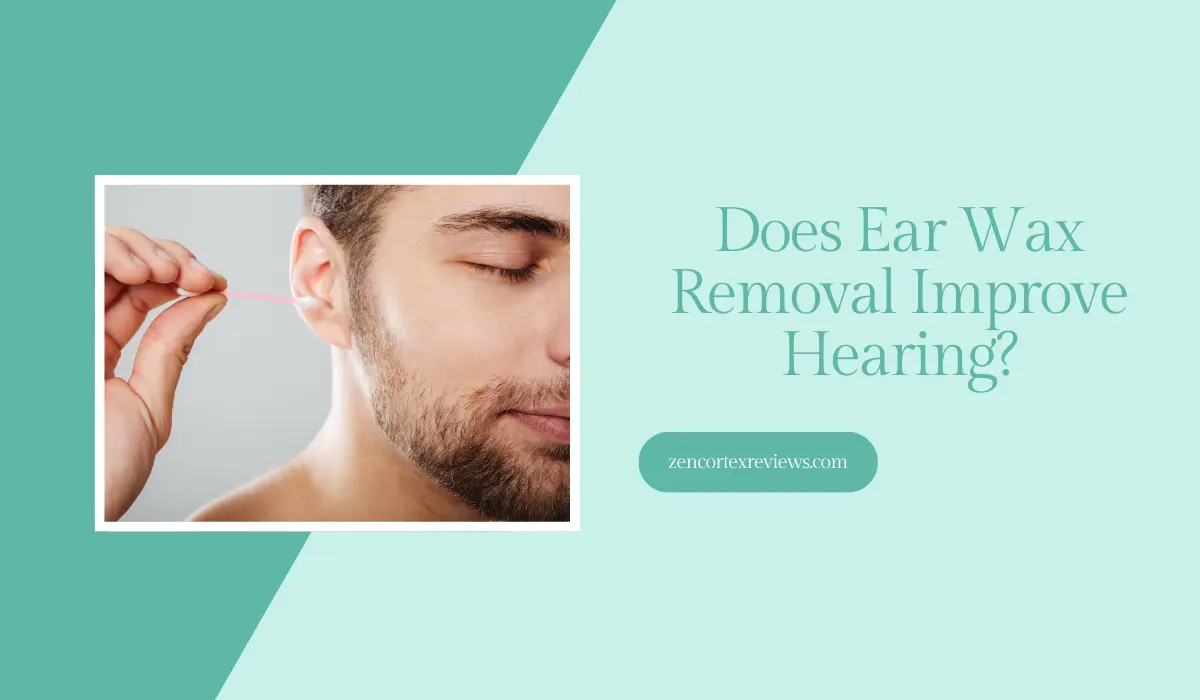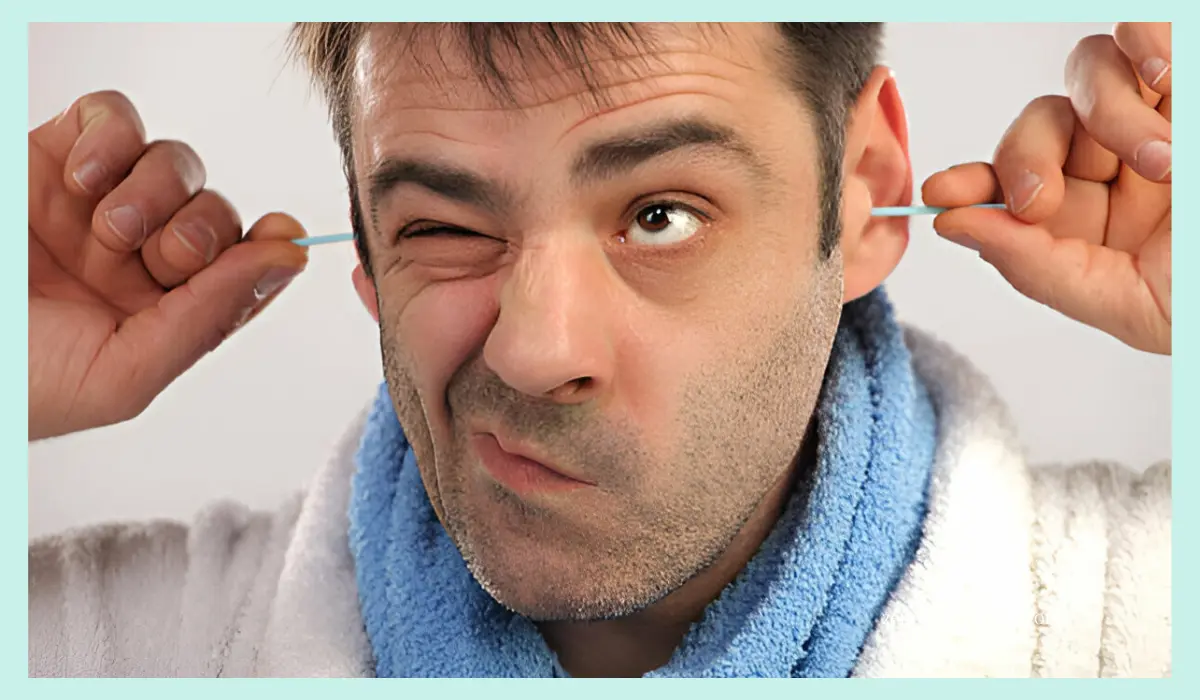Does Ear Wax Removal Improve Hearing? Find Out Now!
Curious about the link between ear wax removal and hearing improvement? Delve into this insightful exploration to uncover the truth. Discover the impact of ear wax buildup on your auditory health and whether its removal can lead to clearer hearing. Get the facts you need to make informed decisions about your ear care and overall well-being. Explore now for valuable insights into optimizing your hearing health.

Disclaimer: Our recommendations are sincere, driven by the products’ benefits. When you buy through our links, we may earn a commission, backing our testing and development at no extra cost to you.
Earwax, also known as cerumen, is a natural substance produced by the ear to protect and lubricate the ear canal. While earwax serves an important function, an excessive buildup can lead to hearing problems, discomfort, and even infection. Ear wax removal is a common practice that many people turn to to improve their hearing. But does it really work? Let’s find out.
The Role Of Earwax

Earwax is produced by glands in the outer ear canal and is composed of dead skin cells, hair, and fatty secretions. Its primary function is to trap dirt, dust, and other particles, preventing them from entering the inner ear and causing potential damage. Additionally, earwax has antimicrobial properties that help protect the ear from infections.
However, too much earwax can cause problems. When earwax accumulates excessively, it can form a blockage that impairs hearing by preventing sound waves from reaching the eardrum. This buildup can also lead to discomfort, ringing in the ears (tinnitus), dizziness, and even ear infections.
Symptoms Of Earwax Buildup
If you suspect that you have an earwax buildup, you may experience the following symptoms:
- Hearing loss or muffled sounds
- Earache or ear pain
- Ringing or buzzing in the ear
- Dizziness or vertigo
- Coughing or a sensation of pressure in the ear
If you experience any of these symptoms, it’s advisable to seek medical attention to determine if earwax is the cause and, if so, to have it removed safely.
Ear Wax Removal Methods
There are several methods for removing excess earwax, ranging from at-home remedies to professional medical procedures. It’s important to note that attempting to remove earwax yourself can be risky and may cause further damage or impaction if not done correctly.
At-Home Remedies
- Over-the-counter earwax removal drops or sprays: These products are designed to soften the earwax, making it easier to drain out naturally or be flushed out with warm water.
- Ear irrigation: Using a rubber-bulb syringe or ear irrigation kit, warm water or a saline solution can be used to gently flush out the ear canal.
Read More: Can Quitting Smoking Improve Your Hearing? What You Need To Know
Professional Removal Methods
- Manual removal (curette or suction): A healthcare professional uses a small, curved instrument called a curette to gently remove the earwax or a suction device to vacuum it out.
- Ear irrigation: Similar to the at-home method, but performed by a professional using sterile solutions and specialized equipment.
- Microsuction: A specialized suction device is used to remove earwax under microscopic visualization, ensuring a thorough and safe removal.
Does Ear Wax Removal Improve Hearing?
The short answer is yes, ear wax removal can improve hearing in cases where excessive earwax buildup is causing hearing impairment. However, the extent of the improvement depends on the severity of the blockage and the underlying cause of the hearing loss.
If the hearing loss is solely due to an earwax blockage, removing the wax can restore normal hearing almost immediately. However, if the hearing loss is caused by other factors, such as age-related hearing loss or noise-induced damage, earwax removal alone may not provide significant improvement.
It’s important to note that while earwax removal can temporarily improve hearing, it’s not a permanent solution. Earwax will continue to accumulate over time, and regular maintenance or professional cleanings may be necessary to prevent future buildup and hearing problems.
Related: Top 6 Vitamins To Improve Hearing And Protect Your Ears
When to Seek Professional Help?
While at-home remedies can be effective for mild earwax buildup, it’s essential to seek professional help in the following situations:
- If you have a history of ear infections, perforated eardrum, or ear surgery.
- If you experience severe pain, bleeding, or dizziness during at-home attempts.
- If you suspect a foreign object is lodged in your ear.
- If you have a significant hearing loss or the blockage is long-standing.
Attempting to remove earwax yourself in these cases can be dangerous and may cause further damage or complications. Try ZenCortex to remove ear wax at home.
Conclusion
Ear wax removal can indeed improve hearing in cases where excessive earwax buildup is the cause of the hearing impairment. However, it’s crucial to approach earwax removal with caution and seek professional help if necessary. Regular maintenance and proper ear hygiene can help prevent excessive buildup and preserve your hearing health. If you experience persistent hearing problems or discomfort, it’s always best to consult a healthcare professional for proper diagnosis and treatment.
Lindsay Martinez
Lindsay Martinez, Au.D., is a licensed audiologist with over 10 years of experience in the field of hearing healthcare. She earned her Doctor of Audiology degree from the University of California, Los Angeles, and currently practices at Martinez Hearing Clinic, a leading audiology practice in the San Francisco Bay Area. As an expert in diagnosing and treating a wide range of hearing disorders, Dr. Martinez specializes in fitting advanced hearing aids and assistive listening devices. She is a fellow of the American Academy of Audiology and has published numerous peer-reviewed articles on topics such as noise-induced hearing loss and the latest innovations in hearing technology. Passionate about patient education, Dr. Martinez is committed to helping her patients improve their hearing and overall quality of life.
